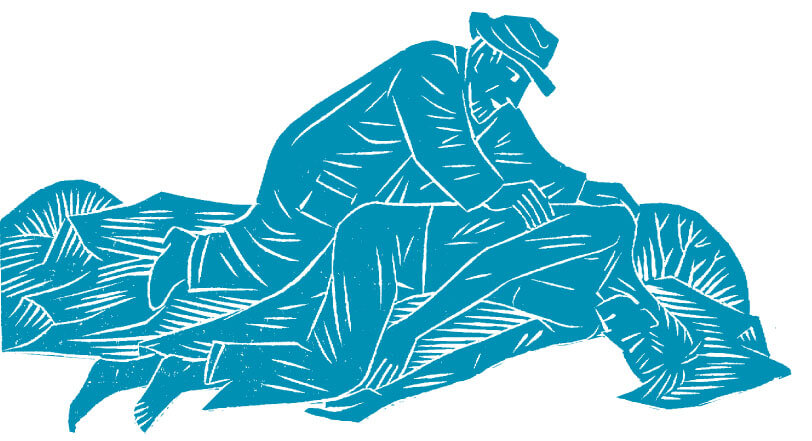
Scripture Readings: Deuteronomy 30.10-14; Colossians 1.15-20; Luke 10.25-37
The lawyer asked Jesus, “And who is my neighbor?” Jesus told this parable: There was a man going down from Jerusalem to Jericho who fell in with robbers. They stripped him, beat him, and then went off leaving him half-dead. A priest happened to be going down the same road; he saw him but continued on. A Levite came the same way; he saw him and went on. But a Samaritan who was journeying along came on him and was moved to pity at the sight. He dressed his wounds, pouring in oil and wine as a means to heal. He then hoisted him on his own beast and brought him to an inn, where he cared for him. The next day he took out two silver pieces and gave them to the innkeeper with a request. “Look after him, and if there is any further expense, I will repay you on my way back.” Jesus asked the lawyer, “Which of these three was neighbor to the man who fell in with the robbers” (Luke 10.29-36).
This gospel story stands at the heart of Jesus’ message of salvation. In effect, Jesus tells the lawyer (and all of us) that to be saved, whole, and happy we must love God and ourselves by loving our neighbors, including those for whom we may have no understanding or liking. Jesus insists that our relationships to God, to others, and to ourselves are intertwined.
Jesus’ parable asks the lawyer and us to stop, reflect, and embrace whom and what we most despise. He asks us to act as the Samaritan does when he stops to help and heal another marginalized person, someone whose wounds and distress everyone else has ignored. He asks us to allow compassion to change our hearts and lives.
The word compassion comes from the Latin, passio (suffering) and cum (with): to suffer or feel with. The Hebrew word for compassion, rahamim, expresses a deeply tender and empathetic love like that of a mother and father for their own child. Compassion may be understood as the capacity to be attracted to and moved by the vulnerability of someone else. It requires the willingness to risk, to stop and share one’s own strengths and vulnerability, rather than rushing on with our own preoccupations or stereotypes.
How have you learned compassion? Who has taken time for you in a crisis? What experiences in your life have taught you compassion?